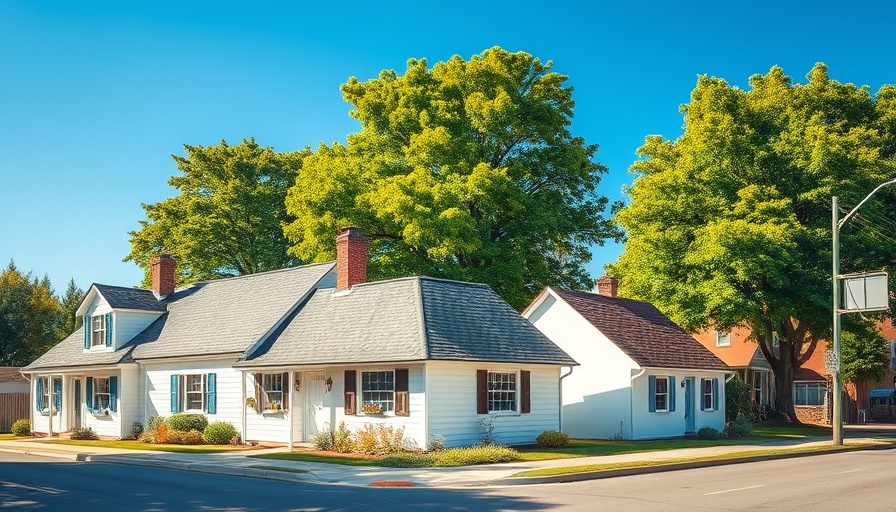
Unlocking Your Basement’s Full Potential: Staying Compliant with Brooklyn’s Building Codes
Transforming the basement into a functional living area or storage space can significantly increase not only the value of your property but also the quality of life for you and your family. However, for homeowners in Brooklyn, navigating the complex web of building codes and zoning regulations is essential to successfully unlock your basement’s potential. This comprehensive guide aims to illuminate the necessary regulations and provide you with design insights tailored specifically to Brooklyn.
Understanding the Importance of Building Codes
Before embarking on your basement renovation journey, it's crucial to understand the significance of adhering to Brooklyn’s building codes. These codes help safeguard the safety of your home and the integrity of the surrounding neighborhood. The NYC Department of Buildings (DOB) provides a thorough list of guidelines that apply specifically to basement renovations. Some of the key regulations include minimum ceiling height, proper egress requirements for safety, and permissible uses of space.
For instance, the standard code stipulates a minimum ceiling height of seven feet for habitable spaces. Beyond height, plumbing, electrical, and mechanical requirements can vary greatly by neighborhood within Brooklyn. Hiring licensed professionals who are well-versed in local codes ensures a smoother renovation process. Their expertise will help you avoid common pitfalls and navigate these complexities effectively.
Navigating the Permitting Process
Once you’re familiar with the building codes, the next step is obtaining the necessary permits required before construction begins. Although daunting, the permitting process can be simplified by taking it step by step. Homeowners must typically submit architectural plans detailing their proposed renovations to the DOB. These plans should clearly highlight essential details such as window placements, the intended use of the space, and how the renovation adheres to zoning regulations.
In some instances, providing a survey that shows property lines will also be necessary to confirm your renovations fit within the existing structure without violating local laws. It’s critical to remember that commencing work without the proper permits can lead to hefty fines or the need to reverse your renovations. By securing all permits before any construction, you protect your investment and peace of mind.
Creative Design Ideas for a Compliant Basement
Upon understanding the regulations and securing the necessary permits, the focus can shift to the exciting aspects of the renovation: design. Here are a few innovative ideas that comply with Brooklyn’s building codes while maximizing space:
- Cozy Family Room: Use ample natural light via window installation and striking décor to create an inviting family room. Ensure to meet egress requirements by opting for larger window openings.
- Home Office: Tailor your basement into an efficient workspace with good lighting, ventilation, and sound insulation. By using fire-rated materials, you can maintain safety while enjoying a productive environment.
- Guest Suite: Transform your basement by adding a small bathroom to create a separate guest suite, enhancing accessibility without compromising on the code requirements.
Common Misconceptions About Basement Renovations
Several misconceptions about basement renovations persist among homeowners, particularly regarding local codes. One common myth is that if a basement is already finished, no further permits are needed for modifications. In reality, any significant changes, even cosmetic, typically require adherence to current codes and might necessitate obtaining new permits.
Another misconception is the belief that basement renovations can automatically be classified as non-habitable areas. Many homeowners underestimate the importance of egress and ventilation, both critical for areas meant to be lived in. Understanding these aspects can significantly save time and reduce costly reworks.
The Future of Basement Renovations in Brooklyn
As urban living grows increasingly valuable, especially in areas like Brooklyn, homeowners should anticipate more stringent regulations and evolving design trends. Energy efficiency and sustainability will likely become crucial facets of any renovations moving forward. Thus, opting for insulation materials that meet or exceed local energy codes will not only fulfill your legal obligations but also result in lower energy bills.
Moreover, the growing trend of utilizing smart home technology will significantly influence future basement renovations. From automated lighting to smart thermostats, integrating technology will redefine how basement areas function, thus improving comfort and convenience.
Final Thoughts
Renovating your basement presents a unique opportunity to enhance your home’s value and functionality. Understanding Brooklyn’s complex building codes is essential to realizing your vision without incurring potential penalties. Knowing the permitting process, benefiting from insightful design ideas, and recognizing common misconceptions promises a smoother journey toward your upgraded space. Homeowners in Brooklyn now have the chance to create vibrant living areas that not only comply with local regulations but also offer unique personal expressions through design.
Start your basement renovation process today and realize the full potential your space has to offer. For more detailed information and assistance in navigating legal and zoning considerations in your renovation, reach out to licensed professionals who can guide you on this rewarding journey.
 Add Row
Add Row  Add
Add 




Write A Comment